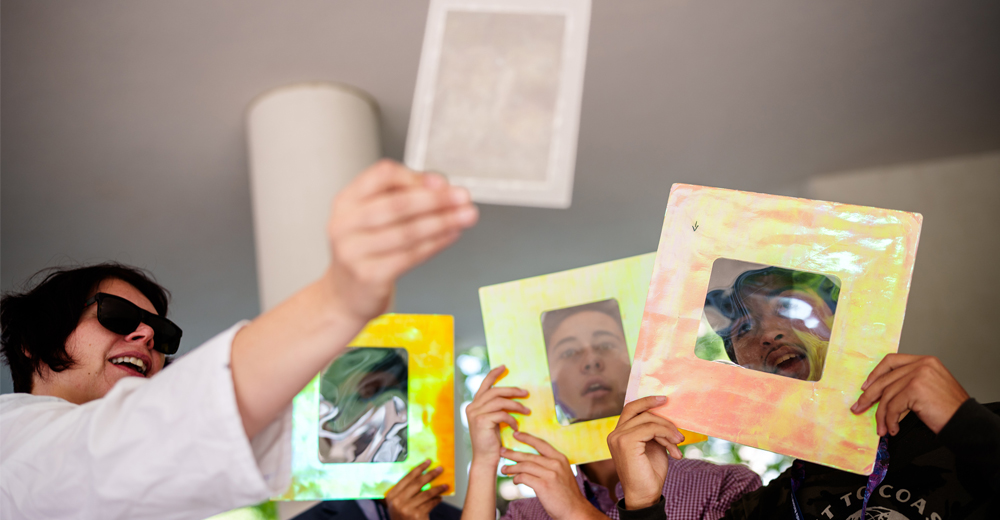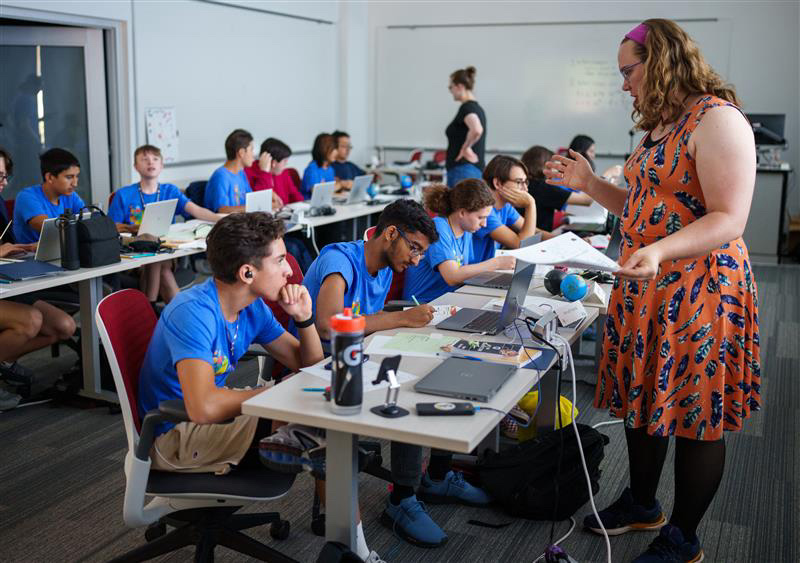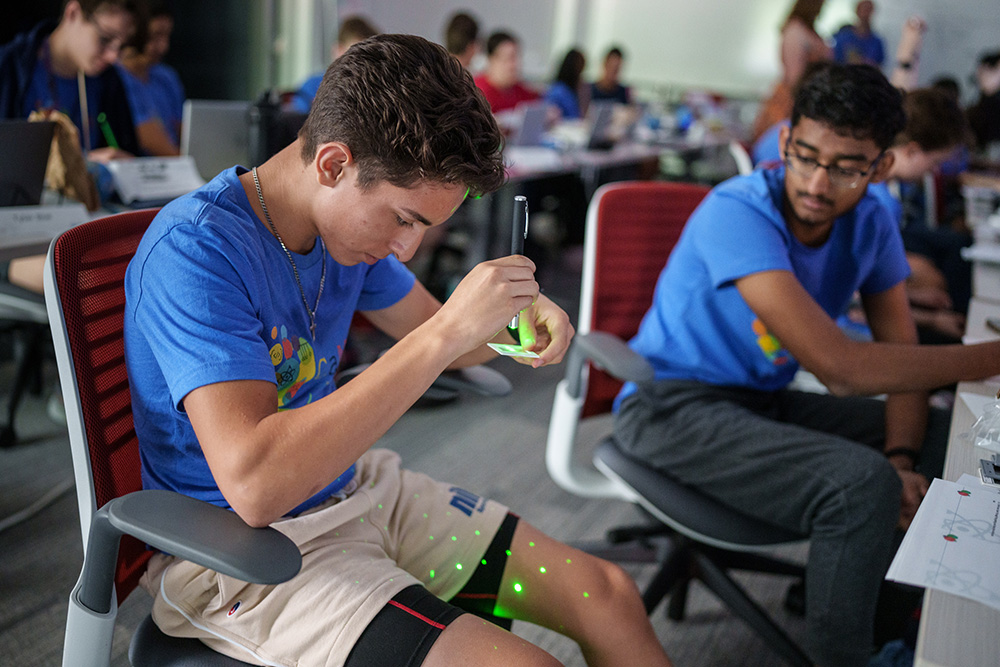Teaching NM high schoolers quantum science

“They said you can’t teach quantum science at the high school level; we’ve proven them wrong,” said Megan Ivory with a huge grin on the last day of QCaMP 2024.
Megan, a Sandia physicist, co-founded the camp with Sandia business development specialist Jake Douglass in 2022 aiming to introduce the complex and often mysterious science to young people. On this day it was clear they succeeded.

“We learned everything that is foundational to quantum; from quantum bits and gates to classical bits and gates so that we can understand quantum bits and gates,” said Anirudh Nanda, a camp participant and student at Albuquerque Institute of Math and Science. Nanda was one of 15 students who attended the camp on the University of New Mexico campus this year.
On closing day, all stood proudly before their families, instructors and community members to present their final projects and demonstrate what they had learned over the previous four weeks. Nanda and teammates Kiondra Jim of Farmington and Taylor Billiman of Gallup explained how quantum could speed up pharmaceutical development.
“Modern medication development is a very time-consuming process that takes decades of research,” Jim said. “One solution is to speed up the process with quantum computers to help chemists understand how molecules react and bond.”
Student projects also focused on using quantum key distribution to keep digital information safe and using quantum sensing to create better prosthetic limbs. “Through this we can help veterans who have had an arm or leg amputated by creating prosthetic limbs that feel like you didn’t lose anything,” Carter Barba, a junior at Albuquerque High School, said about his project.

The students say while the projects and experiments were the best part, the camp opened a whole new world for them. “Quantum is not something I had really thought a lot about, but it is something that I could do in the future,” Eldorado High School student William McGlumphy said. “We learned just how much quantum is going to affect our futures. It really is going to be a huge technological thing, and best of all we got to shoot lasers.”
For some students, the camp was eye opening in a different way, including Valley High School Junior Harrison Jolly. “I learned that there are things that make my brain hurt and I don’t understand,” he said. But Jolly said that won’t discourage him from going into computer science: “There are going to be a lot of applications for quantum in the future and knowing how to use a quantum computer is key.”
Jake hopes the students know that those futures can be right here at home. “We are doing this to work with New Mexico students, to keep them here, to give them opportunities.”
For Jake, that is especially important. He is what Megan likes to call certified “New Mexico True.” Born and raised in Roswell, Jake earned degrees from New Mexico Tech and Highlands University and now has a successful career at Sandia.
“We want these kids to know this is not just a stand-alone camp. We are working with partners around the state to build pathways for students to get into quantum at CNM, UNM, New Mexico Tech or NMSU,” Jake said. “If students leave, we want to make sure they can come back to awesome jobs, which we are also working on. New Mexico can’t often say it’s a world leader in something but in the case of quantum, we can.”
The creation of QCamp
QCaMP, which stands for Quantum Computing, Mathematics and Physics, became one of the first programs of its type in the country when it was created in 2022 by Megan Ivory and Jake Douglass. It started as a virtual-only camp and has grown into an in-person four-week camp for students and three-day camp for teachers. In addition to the students at UNM this year, three New Mexico students were also able to attend remotely in Santa Fe and another 24 students attended QCaMP in California thanks to partners at Lawrence Berkeley National Laboratory and others. To date the camp has taught 143 teachers and 148 students. Thanks to grant funding, both teachers and students receive a stipend to ensure they don’t have to choose between working a summer job and learning about science. QCaMP is made possible in New Mexico through the support of Sandia, Los Alamos National Laboratory, UNM and the Computer Science Alliance.